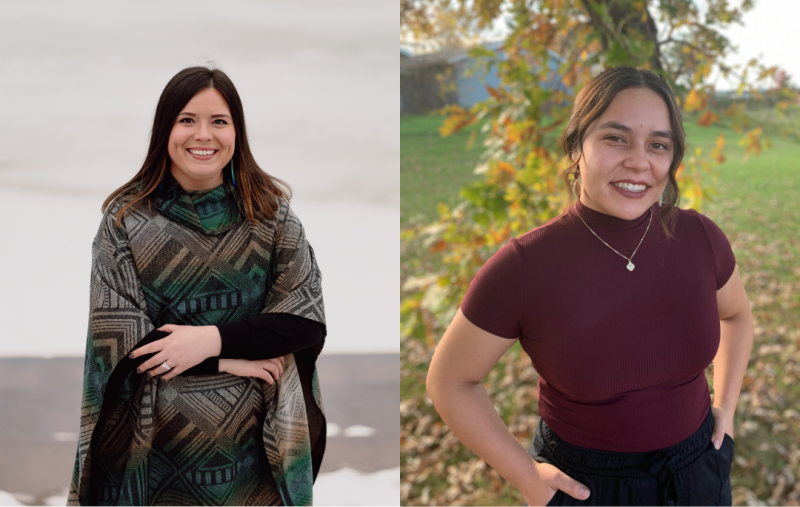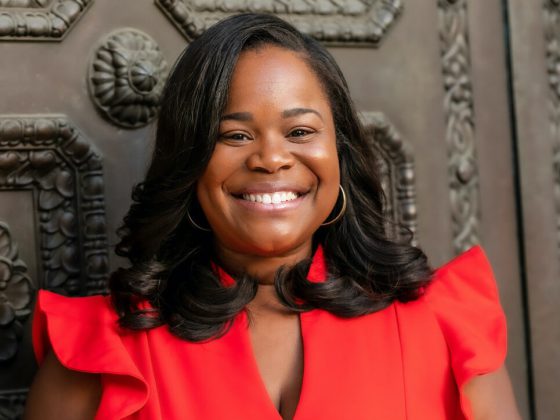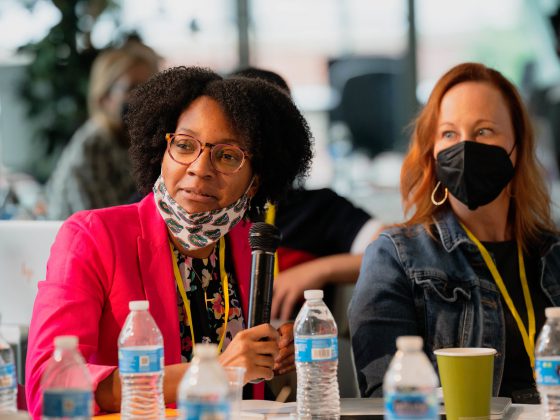Research on Narratives for Native People Wins $10,000 Research Prize in Public Interest Communications
Researchers studying the use of digital platforms to help Native American people tell their own stories were winners of this year’s Research Prize in Public Interest Communications, awarded annually by the University of Florida Center for Public Interest Communications.
Jillian Fish, postdoctoral fellow at the Center for Care Delivery and Outcomes Research at the Minneapolis VA Health Care System, and Payton Counts, formerly with the Indigenous People Task Force, received the $10,000 award for their research “Justice for Native People, Justice for Native Me: Using Digital Storytelling Methodologies to Change the Master Narrative of Native American Peoples.” The project enlisted 75 Native peoples from 34 different tribal communities to create original and authentic stories of their cultures, histories, and lives using digital media technologies. The researchers reviewed the process of creating and implementing stories through the digital platform, highlighting the implications digital storytelling methodologies have for challenging and resisting coloniality by empowering Native peoples to tell their own stories.
Two other finalists received $1,500 each.
A team that included Emily Kubin, Department of Psychology, University of Koblenz-Landau in Germany, Curtis Puryear and Kurt Gray, Department of Psychology and Neuroscience, University of North Carolina at Chapel Hill, and Chelsea Schein, Department of Legal Studies and Business Ethics, The Wharton School of Business, were honored for the their study “Personal Experiences Bridge Moral and Political Divides Better Than Facts.” The research found that the personal experiences most likely to encourage respect from opponents are issue-relevant and involve harm. The study revealed that these harm-related personal experiences increase respect by increasing perceptions of rationality: everyone can appreciate that avoiding harm is rational, even in people who hold different beliefs about issues like guns, taxes, immigration, and the environment.
The second finalists were Michelle Oyakawa, Department of Sociology, Ohio State University, Elizabeth McKenna, Department of Sociology, University of California, Berkeley, and Hahrie Han, Department of Sociology, Johns Hopkins University. Their study, “Habits of Courage: Reconceptualizing Risk in Social Movement Organizing,” examined the types of risk that organizers seeking to build people‐based political power take and describe how organizers cultivate habits of courage in themselves and others to regularly confront these risks. The research identifies and elaborates on two qualitatively different types of risk: internal and external.
The Research Prize in Public Interest Communications is awarded annually at the Center for Public Interest Communications’ frank gathering, a convening for social change communicators and movement builders. Finalists presented their papers to the frank community of practitioners, who voted for the top paper.
The prize is awarded for work that contributes to the understanding of the public interest communications field as a unique discipline, offers insight that can improve the effectiveness of public interest communication practice, details a specific public interest communication campaign, explores evaluative measures, documents specific ways in which public interest communication differs from similar disciplines, or provides insight on how to communicate effectively. This year, a record-breaking 82 papers were submitted.
The papers presented this year at frank 2022 represent the future of the field of public interest communications. The work shared was selected for its rigorous methodology and direct application to social change communications. The scholars are leaders within their own disciplines, which represent diverse perspectives, including social psychological, counseling psychology, and social movement studies. The insights from their presentations will help inform and innovate campaigns and initiatives designed to drive effective social change.
Find out more about past prize winners: 2021, 2020, 2019, 2018, 2017, 2016, 2015, 2014



